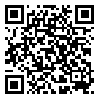Volume 16, Issue 4 (2025)
LRR 2025, 16(4): 9-0 |
Back to browse issues page
Download citation:
BibTeX | RIS | EndNote | Medlars | ProCite | Reference Manager | RefWorks
Send citation to:



BibTeX | RIS | EndNote | Medlars | ProCite | Reference Manager | RefWorks
Send citation to:
masboogh S M, Rajabi Ala H, Fatehi S H. A pragmatic study of the techniques of pilgrims in the Proverbs of Nahj al-Balaghah. LRR 2025; 16 (4) :9-0
URL: http://lrr.modares.ac.ir/article-14-61363-en.html
URL: http://lrr.modares.ac.ir/article-14-61363-en.html
1- Professor of Bu Ali Sina University , smm.basu@yahoo.com
2- PhD student at Bu Ali Sina University
3- Assistant Professor of Bu Ali Sina University
2- PhD student at Bu Ali Sina University
3- Assistant Professor of Bu Ali Sina University
Abstract: (2559 Views)
The pragmatics is one of the main branches of linguistics that considers discourse coherence as the result of interaction between language users and text context. Hence, its subject is the study of the ability to use language and to construct context-related sentences to show how speech makes sense in situations. The pragmatics of language studies the meaning that the speaker conveys and the listener or reader interprets. In the meanwhile, protest and argumentation is a process of linguistic communication that the speaker uses in order to change the attitude and point of view of the audience and in the direction of the desired goals, makes his thought pursue and in this process of techniques and methods Benefits variety. In the present article, the techniques of argumentation were criticized and analyzed in a number of Nahj al-Balaghah proverbs in order to obtain a more accurate reading and understanding of these proverbs. To conduct this research, 95 samples of proverbs in which protest techniques were more common were analyzed based on the book (Al-Amthal wa Al-Hakam Al-Mustakhrajah) written by Mohammad Al-Gharavi. The results showed that Imam Ali (AS) by maintaining the laws of language evolution, in order to persuade and persuade his audience, from a variety of linguistic-rhetorical strategies, methods of persuasion, quasi-logical structures, rhetorical approaches, preaching, simile, allegory, irony and metaphor. Has used and artistically presented his desired moral, social and political concepts in the form of words that express the linguistic and cognitive ability of Amir Bayan (AS).
Send email to the article author
| Rights and permissions | |
 |
This work is licensed under a Creative Commons Attribution-NonCommercial 4.0 International License. |








